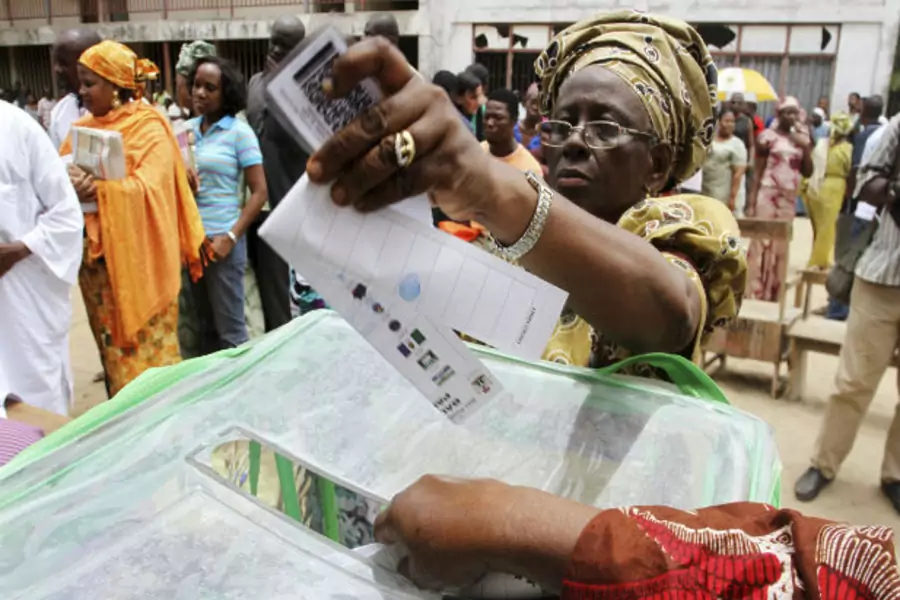More on:
Former President Olusegun Obasanjo has broken with President Goodluck Jonathan’s Peoples Democratic Party (PDP) in favor of the opposition All Progressives Congress (APC). This move, along with numerous other defections from the ruling party, may be a sign that the hitherto badly splintered ruling elites may be coming together again in the face of the Boko Haram insurgency, corruption, incompetency of the federal government, and the Abuja government’s declining economic performance.
Opposition candidate Muhammadu Buhari’s positive polling data and the anecdotal evidence of his growing appeal in all parts of the country and across religious and ethnic lines may reflect this emerging elite consensus. A largely reunited political class in favor of Buhari would make it difficult for Jonathan and the PDP to rig the presidential elections.
Postponed, ostensibly to provide space for the security services to defeat Boko Haram, the presidential election is now scheduled for March 28. After five years of failing to curb the radical Islamist insurgency, it is difficult to imagine that the security situation in the northeast will change much in just six weeks. Even if the government recaptures towns from Boko Haram, the large number of internally displaced persons and refugees, likely Buhari supporters, still would not be able to vote. But, if Buhari sweeps much of the nation, then the possible disenfranchisement of Buhari’s supporters in the northeast would be of minor importance. A Buhari administration elected in a credible election with support from across the country would be well-placed to address Nigeria’s extraordinary challenges and would signal the end of the current political crisis.
However, there are potential flies in the ointment of this optimistic scenario. The first is the extent to which Nigerians will vote along ethnic and religious lines. The country is about half Christian, and the recent presidential campaigning appealed heavily to religious and ethnic identities. The second issue that could mire the electoral process is the role of money. Due to his access to government oil revenue Jonathan has far more funds than Buhari does. He may be able to “buy” an electoral victory as most Nigerians remain desperately poor and the country’s elites increasingly need money as oil revenue and the value of the Naira continue to fall. (However, in the past, Nigerian political figures have accepted payoffs without fulfilling their side of the bargain.) Finally, Buhari represents a real threat to those deeply mired in corruption. With an annual security budget of five to six billion dollars and an unimpressive track record against Boko Haram, the military would appear especially vulnerable to anti-corruption measures.
Under these circumstances, would the military in conjunction with parts of the current ruling party allow Buhari to become president? It was the military that ended Buhari’s twenty month tenure as military chief of state in 1985 largely because of his campaign against corruption. It may be worth remembering that in 1993, the military refused to allow Moshood Abiola to become president, despite his victory in Nigeria’s freest and most credible election (no official election results were ever released).
The Nigerian security services are much weaker now than they were in Abiola’s time. Still, they retain more coercive power than any other group of Nigeria, but only if they are united. That is a big ‘if.’
More on:
 Online Store
Online Store
